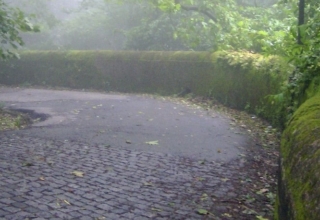
Open Space: A quite different model of collateral organization design is to be found in the more recent enactment of a comprehensive design called Open Space. Originally offered by Harrison Owens (yet another noted organizational consultant), Open Space provides a much less structured process than is the case with Future Search for addressing the diverse issues facing a specific organization or community. Like Future Search, Open Space is a method for organizing and running a meeting or multi-day conference where participants have been invited to focus on a specific, important task or purpose. Unlike Future Search, Open Space is participant-driven and less organizer-driven.
Pre-planning remains essential in preparing for an Open Space meeting. However, less pre-planning is needed than when Future Search is being engaged. The lack of substantial pre-planning is in keeping with an emerging perspective in the sciences regarding complex and chaotic systems that are “self-organizing.” As we now know is the case with many living systems, few hierarchical controls are present in the operation of Open Space. This type of collateral system is to some degree “self-organizing.” As noted, Open Space participants “drive” the agenda through the decisions they make throughout the meeting regarding the topics to be addressed and the extent to which any one topic sustains their attention.
Given the self-organizing nature of “open space” meetings, it is important that some “container” (Eisler’s chalice) be present throughout the meeting. This Open Space container is a set of assumptions that provide a foundation for this distinctive collateral organization. I like to think of these assumptions as representing (and enforcing) the “spirit” of Open Space. Following is a typical set of Open Space assumptions:
Whoever comes to this Open Space event is the right person (an appreciative perspective)
The topics being addressed are those that are most important, and those about which participants have a passion.
Whenever a particular topic emerges, it is the right time
When the dialogue regarding a topic is over, it’s over
Whatever happens is the only thing that could have happened
There is one Law: the “Law of Two Feet: Shoes are made for walking” (participants should feel free to move to another group and another topic)
With these assumptions in place, the Open Space facilitator or facilitation team become much less visible as the Open Space process begins. It is important to note that Open Space facilitators do play a role, but it is one that does not drive the agenda. Along with the guiding assumptions, the facilitators are providing the informal container for this collateral organization. They are “holding a space” for participants to self-organize. The facilitators are definitely not micro-managing either activities or conversations; however, they are attending carefully to ongoing interactions among Open Space participants and will gently intervene if the informal leader of a small group gets heavy handed or if there is any kind of pressure for participants to join (or leave) a particular group.
Unlike what we find in Future Search, the agenda and anticipated outcomes of an Open Space meeting can’t be fully specified prior to the formation of this collateral organization—precisely because of the self-organizing and evolving nature of any specific Open Space meeting. That is why I previously mentioned that any requirement is controversial if a collateral organization is to specify desired outcomes or leadership roles ahead of time. Open Space meetings operate as a dynamic, complex (and often chaotic) living entity. We can’t anticipate what exactly is going to happen or which issues are to emerge and be addressed by Open Search participants. As noted in the basic assumptions I offered, there is an abiding belief that the right topics with emerge and will be handled by the right people.
Download Article 1K Club

















